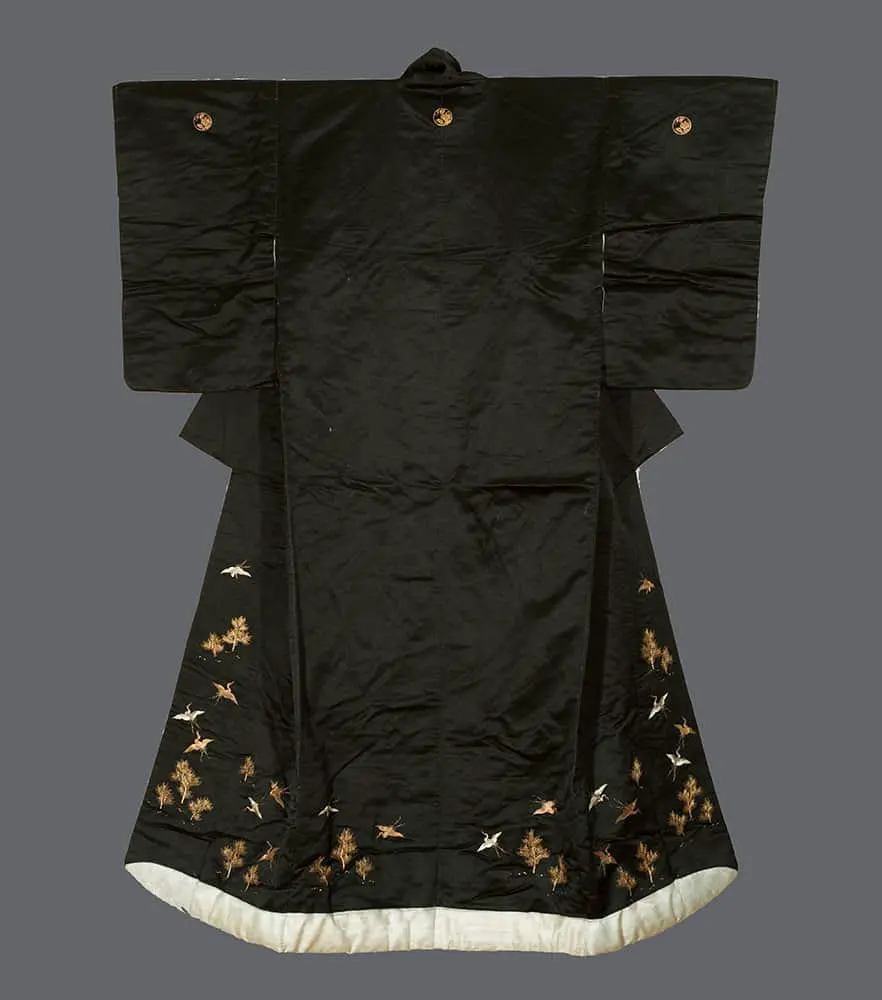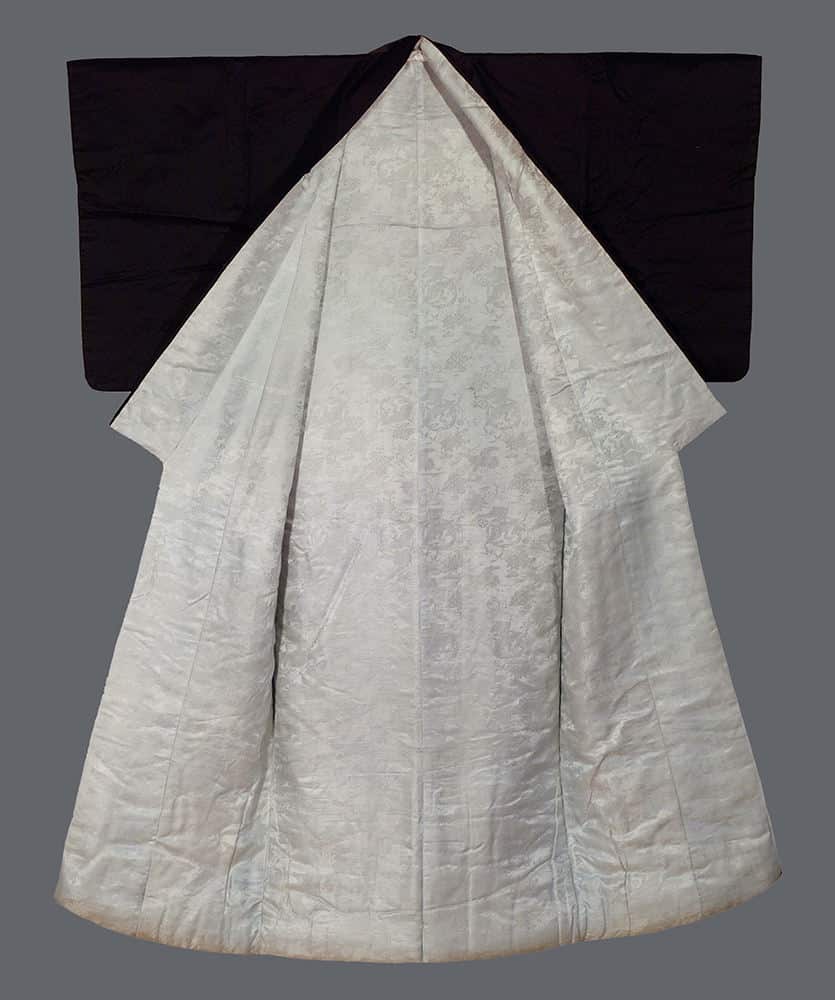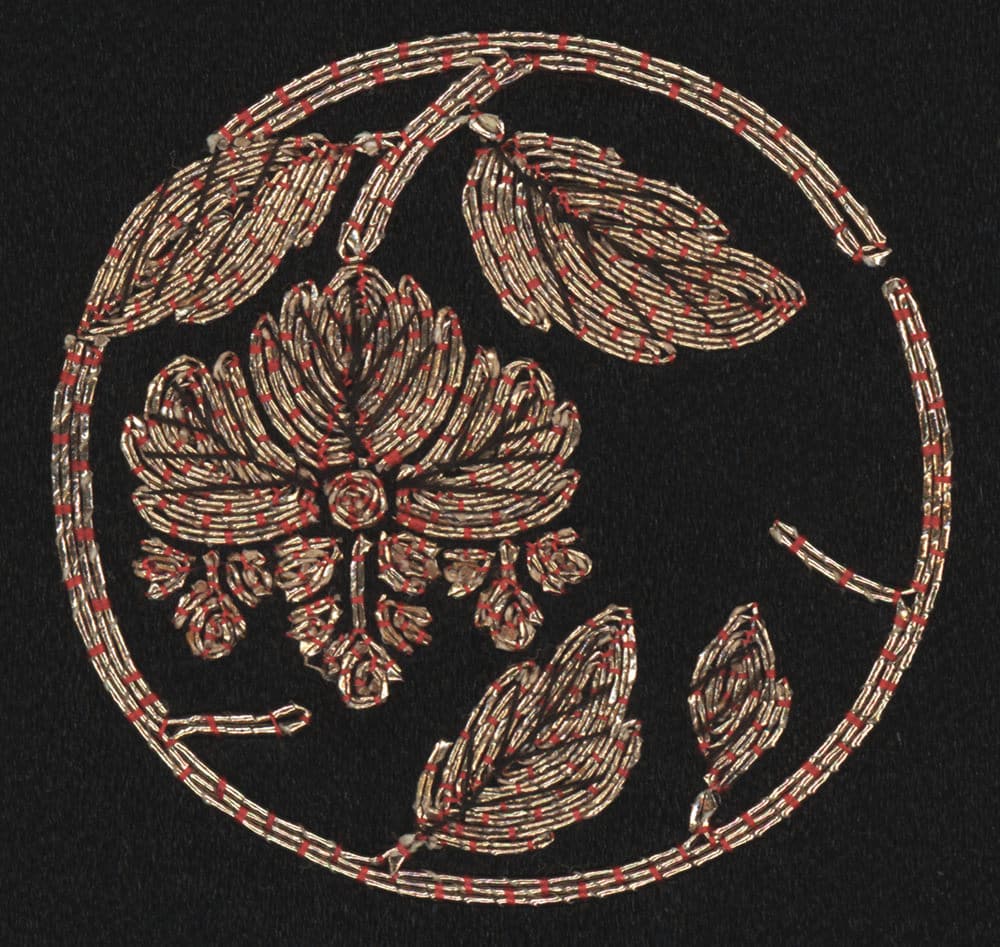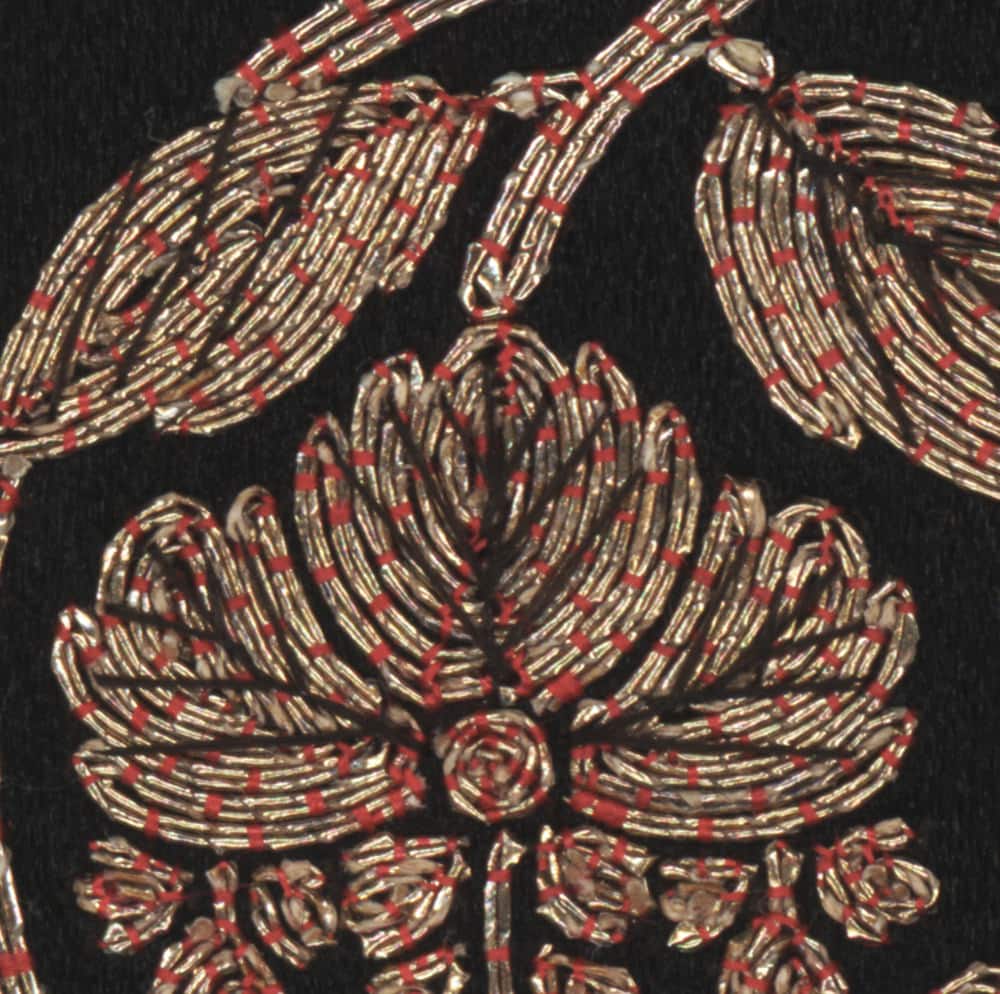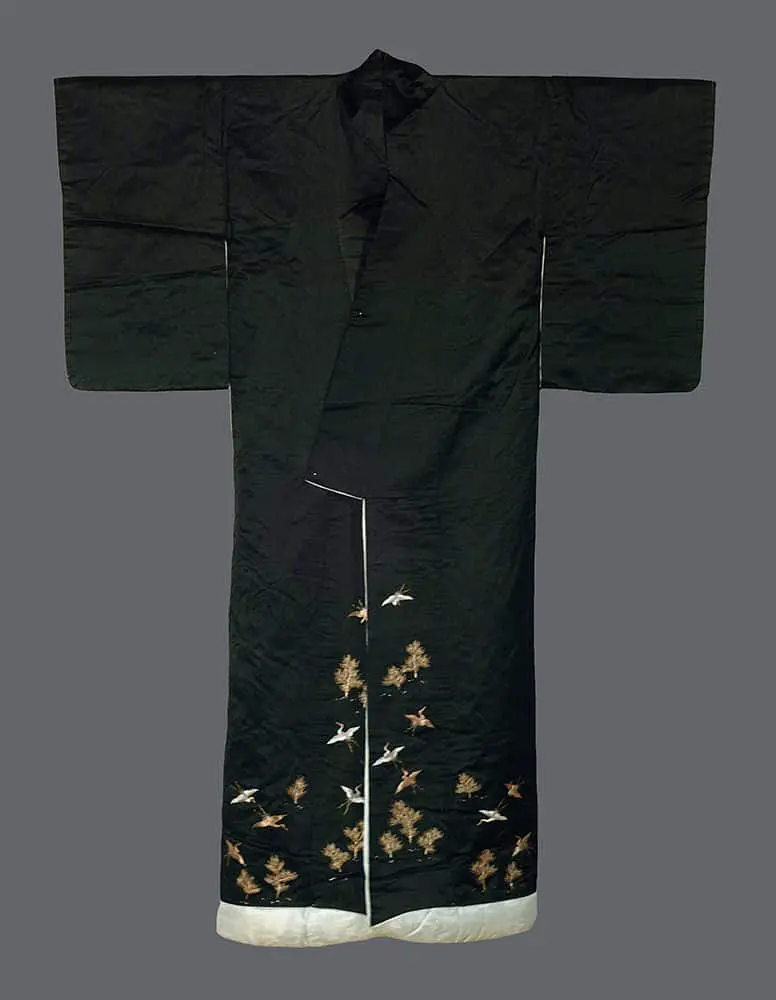This black shusu-silk uchikake employs a sophisticated aesthetic strategy that places delicate naturalistic motifs against an expansive field of deep black silk. The garment demonstrates the classical Japanese principle of restraint and negative space, with the embroidered cranes and pines concentrated in the lower portion of the robe, creating a sense of visual weight and grounding that mirrors the natural world where these elements would be found.
The crane and pine motifs carry profound symbolic significance in Japanese culture, representing longevity, fidelity, and marital harmony—making them particularly appropriate for bridal wear. The cranes, rendered in white with golden accents and metallic thread work, embody the ideals of lifelong partnership and spiritual transcendence, while the pines symbolize steadfastness and eternal youth. The embroidery technique, enhanced with metallic threads, creates a subtle luminosity against the matte black ground, reflecting the Meiji period's embrace of both traditional craftsmanship and the refined luxury that characterized the era's aesthetic sensibilities.
The circular family crest (mon) detail reveals the sophisticated level of textile artistry achieved during this period, with its intricate embroidered design rendered in gold and red metallic threads against the black ground. The bluish-grey rinzu silk lining adds another layer of refinement, demonstrating the attention to hidden beauty that characterizes Japanese aesthetic philosophy—the idea that true elegance extends even to elements that remain unseen. This uchikake represents the synthesis of centuries-old symbolic traditions with the technical innovations and material luxury that defined Japanese textile arts during the transformative Meiji era, when Japan was simultaneously preserving its cultural heritage and engaging with international influences.
It measures 48 inches (122 cm) from sleeve-end to sleeve-end and stands at 63 inches (160 cm) tall.
.avif)

